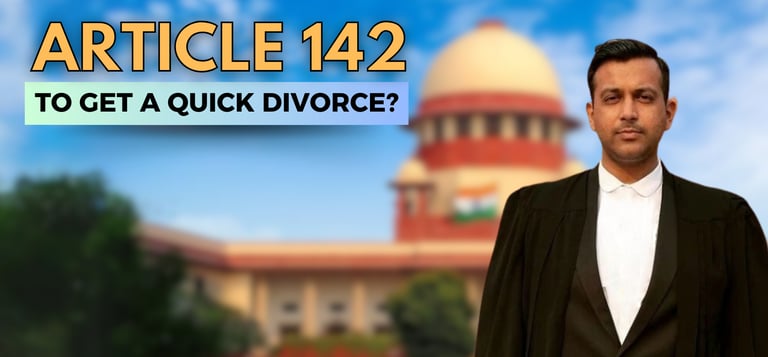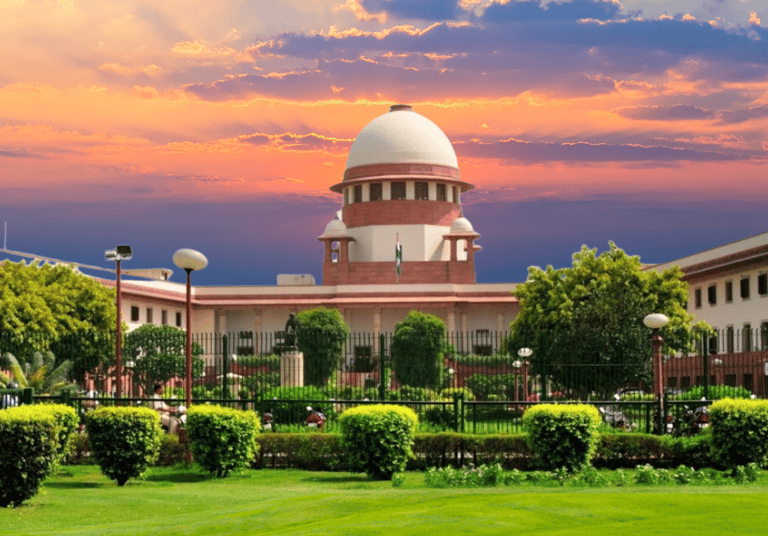Can I use Article 142 to get quick divorce in India?
Amish Aggarwala
Introduction:
The Supreme Court of India made a significant statement a few months ago regarding the use of Article 142 of the Constitution of India in marriage dissolution. This has generated a lot of interest and questions from people seeking quick marital dissolution through this legal provision. In this blog post, we'll clarify the Supreme Court's stance on Article 142 and provide guidance on when and how it can be used for marriage dissolution.


Article 142 of the Constitution of India: A Brief Overview
Article 142 of the Indian Constitution empowers the Supreme Court to pass any order necessary for the ends of justice. While this provision is potent, the Supreme Court has issued specific guidelines for its use in marriage dissolution cases.
The Supreme Court's Stance:
The Supreme Court has categorically stated that Article 142 will not be used directly if a petition is filed directly with the court. It will only be utilized sparingly and in very special circumstances.


Special Circumstances for Article 142 Use:
Long-Running Disputes: The court is more likely to invoke Article 142 when the marriage dispute has been ongoing for many years, and both parties have filed multiple cases against each other.
Multiple Cases Filed: The court takes into account whether multiple cases have been filed by both parties against each other. When there is a history of litigation and the marriage's dissolution remains unresolved despite repeated legal interventions, Article 142 may be considered,
Alternative Approach: Mutual Divorce Given the Supreme Court's stance on Article 142, it's advisable for spouses seeking a divorce to consider mutual divorce as the first option. This is often a quicker and less painful process and doesn't require the court to invoke Article 142.
Legal Remedies for Unreasonable Parties: If the other party is unreasonable and unwilling to agree to a mutual divorce, legal remedies can be explored. The court will consider the specific circumstances of the case before deciding whether Article 142 is applicable.

indian lawyers,amish aggarwala,better call amish,lawyers,law,law students,delhi lawyer,supreme court live,supreme court india,divorce lawyer,divorce lawyer dellhi
